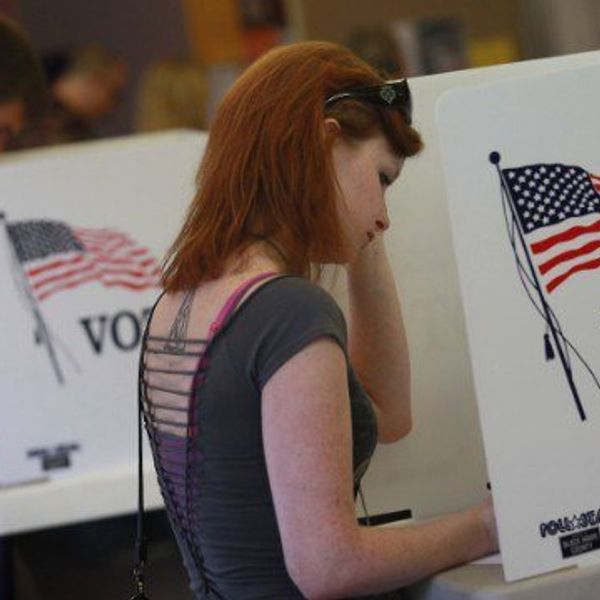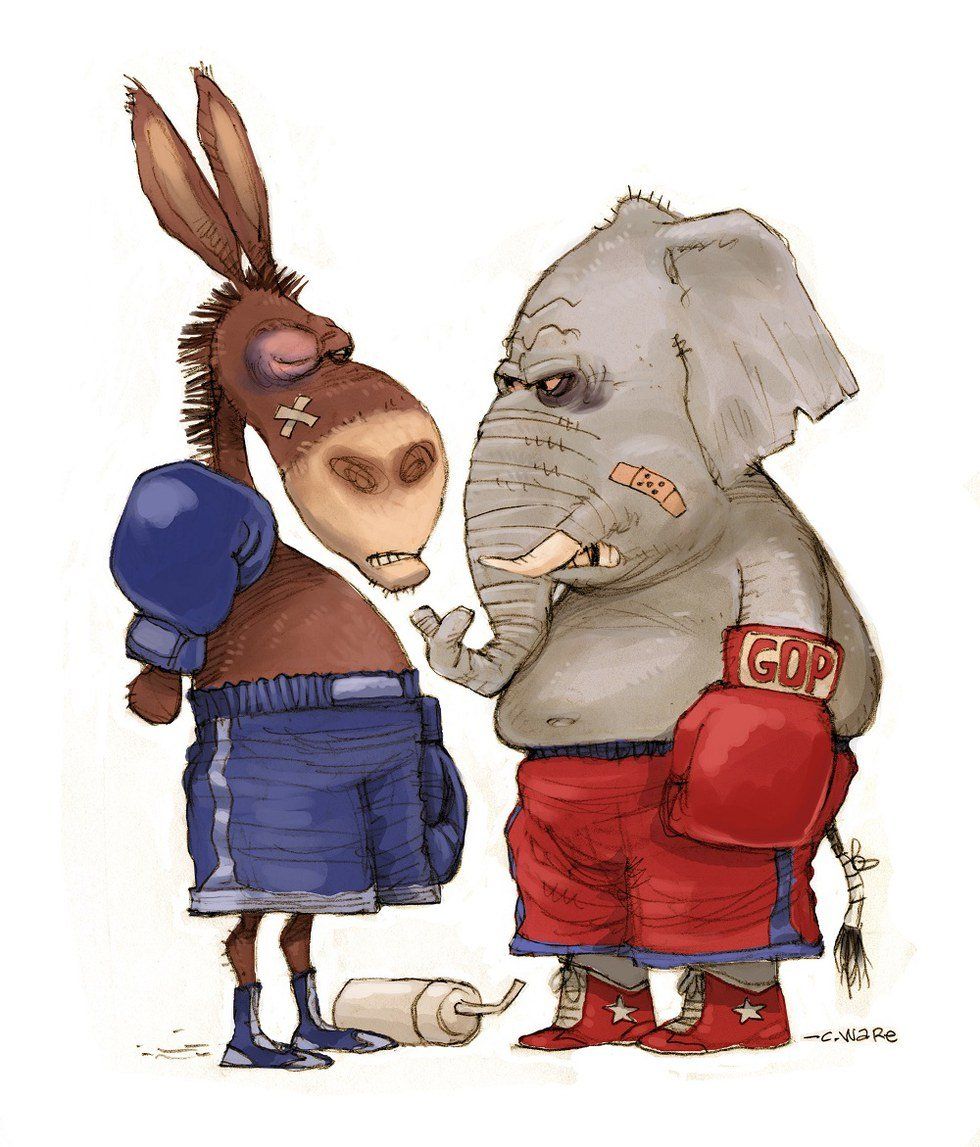Americans are fortunate enough to be able to form their own opinions and viewpoints about the governments that serve them, a freedom that I believe we take for granted quite often. Millions of people across the globe do not enjoy the same luxury and are often bombarded with propaganda about exactly what they must believe about their ruling body.
Democracies are designed to give power to the people. Ideally, the public is supposed to form ideas and opinions and then elect representatives to carry out those tasks. In most democracies, this is achieved through a multitude of political parties, each representing different policies and objectives.
American political parties don’t seem to operate the same way. If anything, they’ve evolved to tell us what to believe rather than the other way around. Because we’ve clung to and progressively polarized the same two parties since the birth of our country, this process is officially a hindrance to our political system.
Although the Democratic and Republican parties have both changed dramatically throughout the last century, it’s indisputable that the most striking of these changes is the completely partisan ideologies that currently define the American politic.
This extreme polarization leaves voters with two very different options without any room for a solution in the middle. While we may have struggled through the resulting gridlock in the past, our current cluster of a presidential election is good reason to believe that it’s high time for change.
The fact of the matter is that America is too big to completely disregard the options in the middle. It is imperative that we take advantage of the opportunity to form varied and considered opinions in order to mold our political system into one that will better serve all interests.
It’s difficult to know where to start when making the decision to form your own opinions and relinquish yourself from the cookie-cutter policy shackles that our political parties are so intent to keep in place. So while we struggle through the next few months leading up to the election, take some time to do these five things and enlighten yourself and those around you.
1. Let your friends tell you what they think.
This is the easiest way to learn about the different frames of an issue. Don’t just ask your friends what they think, ask them why they have that viewpoint and how they believe it should be carried out in reality. If you know the reasoning behind people’s beliefs, you can rationalize them against your own experiences and expand your understanding of the issue itself.
2. Let your enemies tell you, too.
Although it may be miserable to listen to viewpoints that oppose your own, it’s important to be conscious of each and every side to an issue. You might even find that you agree with people on certain points and disagree on most others, knowledge that will help you form opinions that consider walks of life other than your own.
3. Read the legislation.
You truly cannot have a fully formed opinion without first having a grasp of what exactly our representatives are attempting to pass into law. Don’t believe everything you see on the Internet, just read it for yourself. You may be opposed to legislation because of what you’ve been told it will implement, but party propaganda is skewed for that exact reason (I suggest starting with the gun control proposals).
4. Watch the debates.
I often find myself wanting to scream during debates, but I think they’re crucial to showing the extreme rifts between the parties. If you actually sit down and listen to what’s being said by both sides, it’s pretty obvious how incoherent our black-and-white ideologies have become. If you want to go a step further, read the transcripts of the debates. You’d be surprised how much harsher words can look when they’re written down.
5. Open your eyes.
Remember when you were 11 and you thought you knew everything, and then at 16 you looked back and laughed at the fact that you were so falsely confident at such a young age? The same ideological change will most likely occur again when you’re 30 or 40 or 80, so stop thinking that your current opinions are the only ones you’ll ever agree with. Be open to the idea of changing your mind, it really is OK. That doesn’t mean you have to alter each of your views or any of them at all, just be open to it.





















